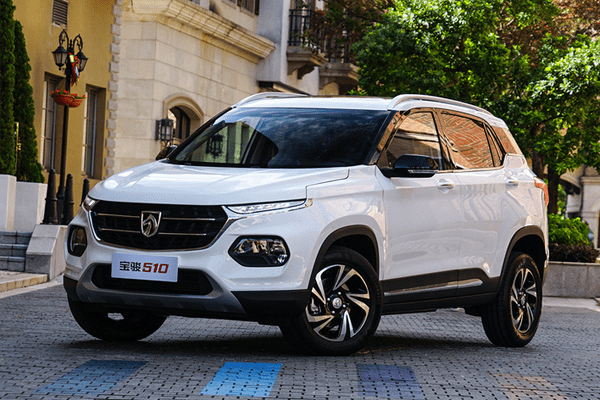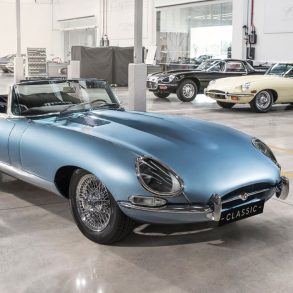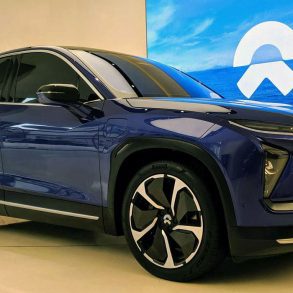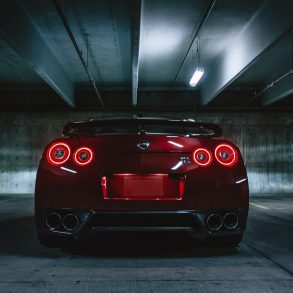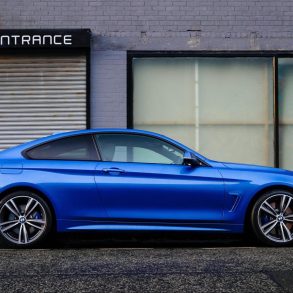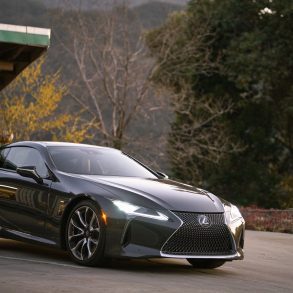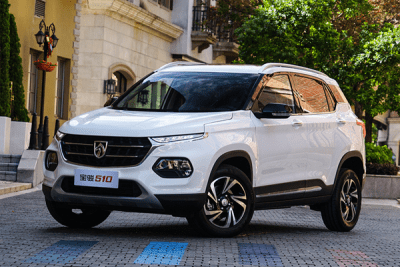 Buick has been GM’s volume brand in China for decades as it enjoyed huge popularity with the masses, its image boosted by the last emperor, who owned two of them. Buick still sells over a million cars a year in the People’s Republic, over 5 times as many as its sells at home in the United States, but its time as the best selling General Motors brand in China may soon be over. In November for the very first time ever, sales of GM’s low-cost Baojun brand, from its SGMW Joint Venture with Chinese auto giants SAIC and Wuling, outsold Buick as its sales jumped more than 40% to nearly 128.500 units. Buick sales were up 2,1% to just
Buick has been GM’s volume brand in China for decades as it enjoyed huge popularity with the masses, its image boosted by the last emperor, who owned two of them. Buick still sells over a million cars a year in the People’s Republic, over 5 times as many as its sells at home in the United States, but its time as the best selling General Motors brand in China may soon be over. In November for the very first time ever, sales of GM’s low-cost Baojun brand, from its SGMW Joint Venture with Chinese auto giants SAIC and Wuling, outsold Buick as its sales jumped more than 40% to nearly 128.500 units. Buick sales were up 2,1% to just
over 125.000 units. For the first 11 months of 2017, Baojun sales are up 33,7% to 881.000 compared to a drop of 1,2% in Buick sales, to nearly 1,1 million. What makes this performance even more impressive is that Baojun, which has a logo of a horse’s head as its name translates “treasure horse” from Chinese, was only introduced in 2010 and currently has just 6 models in its line-up, compared to 10 Buick nameplates. Baojun specializes in entry-level cars marketed to first-time car buyers in rural areas and small cities in China, mostly competing with other domestic brands. In China’s heartland, car sales have continued to rise by double digits even when sales growth in the tier-1 markets, the large coastal cities, has flattened. Its connection to General Motors gives it a huge image boost compared to its domestic rivals, and as a result Baojun reached a record #4 spot in the November 2017 brands ranking and #2 domestic brand behind Geely. It was the only brand to have 3 models in the November best selling models ranking.
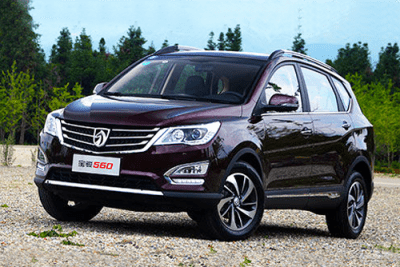 GM’s main rivals Volkswagen, PSA and Ford have failed to recognize that China’s growth would shift from the major cities to the vast hinterland with its millions of Chinese in so-called tier-three, -four and -five cities who had never owned a vehicle before or were used to driving cheap but noisy and uncomfortable rear-wheel drive microvans and minitrucks. The SAIC-GM-Wuling Joint Venture had been making such no-frills vans for these markets since 2002 and was one of the first to envision the potential for car sales once the middle-class in these parts of the country started to grow and launched a small and affordable sedan under the newly founded Baojun brand in 2010. Since 2014 the brand has added at least one new nameplate annually, starting with the 730 MPV, followed by the 560 crossover in 2015, the 310 hatchback in 2016 followed by the 310Wagon in 2017 as well as the 510 crossover and E100 EV.
GM’s main rivals Volkswagen, PSA and Ford have failed to recognize that China’s growth would shift from the major cities to the vast hinterland with its millions of Chinese in so-called tier-three, -four and -five cities who had never owned a vehicle before or were used to driving cheap but noisy and uncomfortable rear-wheel drive microvans and minitrucks. The SAIC-GM-Wuling Joint Venture had been making such no-frills vans for these markets since 2002 and was one of the first to envision the potential for car sales once the middle-class in these parts of the country started to grow and launched a small and affordable sedan under the newly founded Baojun brand in 2010. Since 2014 the brand has added at least one new nameplate annually, starting with the 730 MPV, followed by the 560 crossover in 2015, the 310 hatchback in 2016 followed by the 310Wagon in 2017 as well as the 510 crossover and E100 EV.
After Baojun’s launch, only Dongfeng-Nissan with its Venucia brand followed in 2012 and even outsold its rival in 2012 and 2012, but it has been a lot less successful in recent years (2017 sales in the first 11 months are up 24,5% to nearly 124.000, less than Baojun’s November sales), as it initially mainly just sold retired Nissan models or platforms with few significant changes as “new” Venucia models and offered little in terms of content or features. In contrast, at just 36.800 yuan (€4.990,- / US$ 5,470), the Baojun 310 is equipped with a full-color 8-inch touchscreen on top of the center console. It also has trendy orange colored accents in the interior and alloy wheels to appeal to the younger crowd. Only recently Nissan and Dongfeng have realized the missed opportunity for Venucia and have promised to give it more focus to help it grow with new products and an improved content. Honda’s attempts at creating low-cost local brands with its Chinese partners GAC (Everus) and Dongfeng (Ciimo) failed miserably for the same reason as Venucia as well lack of new product as its partners were happy with just raking in the profits from booming sales of the Honda brand.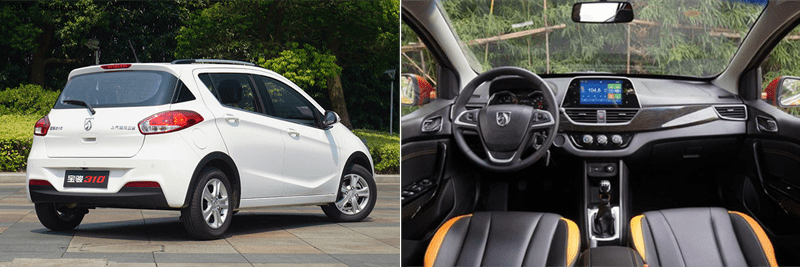
Volkswagen has been contemplating a low-cost domestic brand for years and is finally getting serious about it, but in the meantime GM is already selling a million Baojuns a year. The next step for the brand is to help General Motors to expand its electric car sales as the Chinese government is planning to launch a California-style 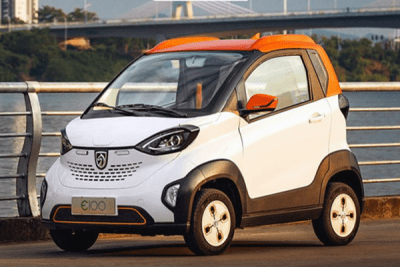 carbon credit trading scheme in 2019 which forces automakers to build (and sell) EVs and PHEVs in large quantities. In response, VW and Ford have formed new Joint Ventures with Chinese lower-tier EV makers (VW with JAC and Ford with Zotye) to build affordable EVs for the domestic market, as those partners can give them the access they need to tap China’s entry-level market. General Motors already has an established brand to reach those customers and even already has started sales of SGMW’s first all-electric city car, the Baojun E100. Sales in its launch city of Liuzhou, Guangxi (Baojun’s hometown) started in August and topped 1.915 in November before the model will be rolled out to other cities next year.
carbon credit trading scheme in 2019 which forces automakers to build (and sell) EVs and PHEVs in large quantities. In response, VW and Ford have formed new Joint Ventures with Chinese lower-tier EV makers (VW with JAC and Ford with Zotye) to build affordable EVs for the domestic market, as those partners can give them the access they need to tap China’s entry-level market. General Motors already has an established brand to reach those customers and even already has started sales of SGMW’s first all-electric city car, the Baojun E100. Sales in its launch city of Liuzhou, Guangxi (Baojun’s hometown) started in August and topped 1.915 in November before the model will be rolled out to other cities next year.

